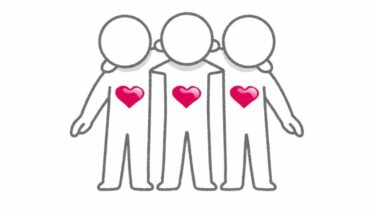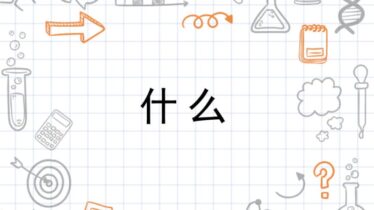'有点儿' (yǒudiǎnr) กับ '一点儿' (yìdiǎnr)
The Chinese language level of HSK2 is generally simple. Nevertheless, there are several Mandarin language points that learners often get wrong. A common of them is the similarities and differences between ‘有点儿’ (yǒudiǎnr) versus ‘一点儿’ (yìdiǎnr)
Subtle difference:
Let’s look at this example:
- 你今天怎么样?
- Nǐ jīntiān zěnme yàng?
- How are you doing today?
And you can answer:
- 一点儿累。
- Yìdiǎnr lèi.
- A bit tired.
Unfortunately, this is WRONG! It should be “有点儿累”(Yǒudiǎnr lèi ). “But why? They both mean ‘a little bit’, isn’t it?” Yes, you are right. However, there are very subtle but important differences between them.
一点儿+noun
“一点儿” is “a little bit of something, mostly substantial things “, such as 牛奶 (niúnǎi, milk),钱 (qián, money),蛋糕 (dàngāo, cake), 时间 (shíjiān, time). So it’s always used before a noun and indicates the amount of the things is not very many.
有点儿 + adjective
“有点儿” is “a bit ”, it describes the degree is not a lot. It is used before adjectives, for example 忙 (máng, busy),累 (lèi, tired),贵 (guì, expensive),难 (nán, difficult) and often indicates a negative feeling. It can also be used before verbs related to emotions, like 喜欢 (xǐhuān, like),讨厌 (tǎoyàn, hate),羡慕 (xiànmù, envy).
有 + (一)点儿 + Noun
There is a very tricky situation, when “一点儿 + noun ” is used with the verb “有” (yǒu, to have/there is),which means “somebody has a little bit amount of something” or “there is a little bit amount of something”. For instance, “我有一点儿钱。” (Wǒ yǒu yìdiǎnr qián, I have a small amount of money) “冰箱里有一点牛奶。”(Bīngxiāng lǐ yǒu yìdiǎnr niúnǎi, there is a small amount of milk in the refrigerator.) What’s more confusing is the “一” can be omitted! But remember it’s still two words here”有” and “(一)点儿” (have/there is and a little of) instead of one word “有点儿” (a little bit).
Adjective+(一)点儿
Then how about “便宜一点儿”(Piányí yìdiǎnr)? “便宜” (Piányí ) is an adjective, why we are using “一点儿” instead of “有点儿”?
Yes, you are right. But pay attention to the positions of the words. When we put “一点儿” (and the “一” can be omitted) after an adjective, it means “a bit more”, which involves a comparison. “便宜一点儿” (Piányí yìdiǎnr) means “a little bit cheaper”. And “有点儿” doesn’t have the same function.
Difference in emotions:
The two phrases are similar because both mean ‘a few’, ‘a little’, ‘no more’ or ‘less’. But the differences are more complicated. We can look at 有点儿 yǒudiǎnr versus 一点儿 yìdiǎnr from the structural and emotional point of view.
Let’s see the example of Liu Aili going to buy clothes:
- 这件衣服有点儿大,请帮我换一件小一点的。
- Zhè jiàn yīfu yǒudiǎnr dà, qǐng bāng wǒ huàn yí jiàn xiǎo yìdiǎnr de.
- This dress is a bit big, please change me to a little bit smaller one.
| 有点儿yǒudiǎnr | 一点儿yìdiǎnr | |
| 结构 structure | yǒudiǎnr 有点儿 + adjective or mental verb | yìdiǎnr adjective + 一点儿 yìdiǎnr 一点儿 + noun |
| 例句 example | Zhèxiē píngguǒ yǒudiǎnr duō. 这些苹果有点儿多。 (There are a lot of these apples.) Zhège shāngdiàn de dōngxī yǒudiǎnr guì. 这个商店的东西有点儿贵。 (The things in this shop are a bit expensive.) Wáng xiǎomài yǒudiǎnr bù gāoxìng. 王小麦有点儿不高兴。 (Wang Maimai is a little unhappy.) Tīng dào zhè jiàn shìqíng, tā yǒudiǎnr nánguò. 听到这件事情,他有点儿难过。 (He was a little sad to hear this.) | Zhè jiàn bǐ nà jiàn guì yìdiǎnr. 这件比那件贵一点儿。 (This one is a bit more expensive than that one.) Zhège shǒubiǎo piàoliang yìdiǎnr. 这个手表漂亮一点儿。 (This watch is a little more beautiful.) Nǐ kěyǐ hē yìdiǎnr kāfēi/shuǐ. 你可以喝一点儿咖啡/水。 (You can drink a little coffee/water.) Māmā mǎile yìdiǎnr cài. 妈妈买了一点儿菜。 (Mother bought some vegetables.) |
| 情感 feeling | 不满意 Unsatisfactory | not used for this |
| 例句 example | Zhège fángjiān yǒudiǎn er xiǎo. Wǒmen zài kàn kàn bié de fángzi. 这个房间有点儿小。我们再看看别的房子。 (This room is a bit small. Let's look at other houses.) Zhè jiàn máoyī yǒudiǎn guì. Piányí yīdiǎn er ba. 这件毛衣有点贵。便宜一点儿吧。 (This sweater is a bit expensive. Cheaper please.) | not used for this |
In summary, not only is the structure is different, but so is the emotion. We hope that clarifies how to use these two simple yet difficult words. If you still don’t get it right, don’t worry too much about it – it’ll become more natural as you progress through the HSK levels.



